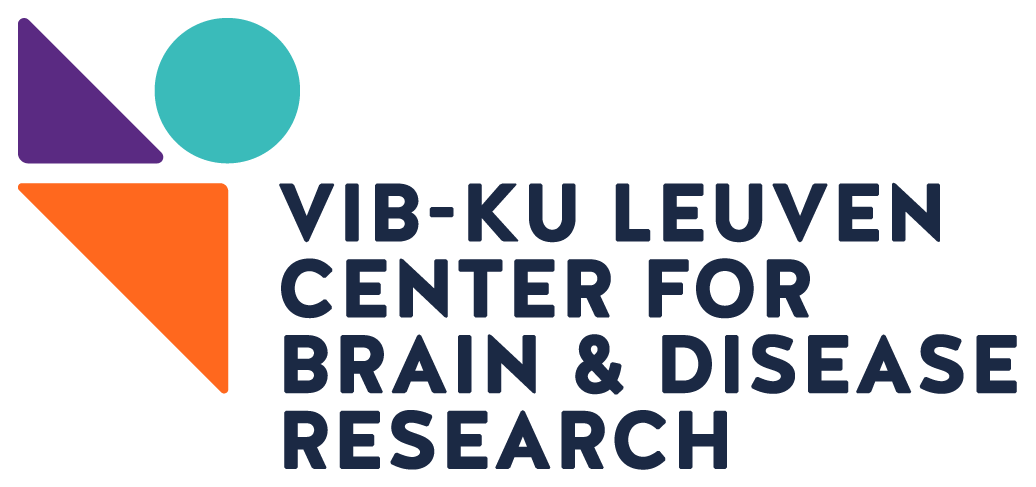Alumni

Resources for Alumni
Are you a VIB-KU Leuven Center for Brain & Disease Research Alumni? We'd love to stay in touch.
Tell us what you've been up to since your time at the Center by filling in our Alumni Form.
Keep in touch with other alumni by joining our LinkedIn Alumni Group.
Finally, get featured in our Ask an Alumni Blog Series - check out an example post and contact us to get involved!
Meet Manu, a Postdoc Alumni who recently became a Group Leader within VIB
Emanuela Pasciuto is making strides in the field of neuroimmunology. Having spent several years at the Center for Brain & Disease Research as a Postdoc, she recently landed a position as Group Leader in VIB's very own Center for Molecular Neurology at UAntwerp. Read more about her time at our Center, and how her experience here prepared Emanuela for her new role.

Group Leader Alumni
A few examples of PI's who had a fruitful research period at the Center for Brain & Disease Research and continued on to pursue other fantastic positions.

Claudia Bagni
Claudia was appointed Director of the DNF at the University of Lausanne where her group continues to work on the cellular and molecular mechanisms of synaptopathies.

Bassem Hassan
Bassem was appointed Scientific Director of the Paris Brain Institute. His research focuses on how the genome builds the brain.

Adrian Liston
Adrian is Senior Group Leader at Cambridge University. His lab works on regulatory T cells.
Meet more of our Alumni
Our PhD students and postdocs spread their wings to positions in all corners of the world. We've compiled a few testimonies, that give insight into how their time at our Center has shaped their career path.
Steven Boeynaems
Steven Boeynaems
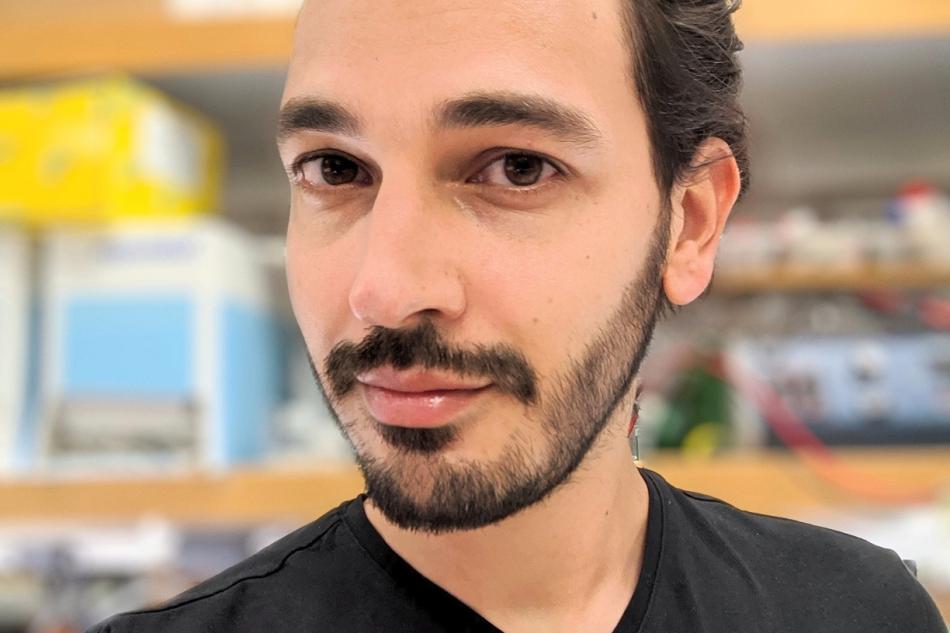
- Group leader and assistant professor at the Baylor College of Medicine, Texas
- Former PhD student at the Van Den Bosch lab
Tell us a bit more about your group and current research
I started my independent group in the fall of 2022 as an Assistant Professor at the Department of Molecular and Human Genetics at Baylor College of Medicine and an Investigator at the Neurological Research Institute at the Texas Children’s Hospital in Houston. The core goal of our work is to understand how cells sense and cope with stress—a deceivingly simple yet elusive question with big implications for physiology and disease. Most of what we do centers on biomolecular condensates and their role in age-related neurodegenerative diseases, but we venture out into brain cancers and infectious diseases as well. What really sets us apart from others is that we don’t shy away from approaching human disease from unusual angles. Lessons we learn from microbes, plants, and even venomous animals get applied to our translational work and vice versa.
How do you look back on your time in Leuven?
I lived in Leuven for ten years, from my Bachelor's to my PhD. It is such a vibrant and charming city with warm people and energy you only find in (small) university towns. KU Leuven was such a phenomenal place to receive my education and I felt truly blessed to start my scientific career at VIB in the Verstrepen (MSc) and Van Den Bosch (PhD) labs. VIB is an incredible scientific environment and I am still reaping the benefits from my training and the network I built there. Those ten years in Leuven really formed me as a person and a scientist and I am absolutely grateful for everyone I met along the way.
Any advice for postdocs looking to take the next step in their career?
Try to reach out to at least one postdoc/PhD student at your institute weekly and ask them for a coffee. Every scientist loves talking about their work, and no one says no to a free coffee, so at worst, you have to spend half an hour listening to some amazing science. Yet, you will be surprised how many such informal interactions can lead to unexpected collaborations. I religiously did his during my postdoc years, and it absolutely transformed my career. It allowed me to connect with peers and build a network on campus, I started collaborating on a wide variety of topics outside of my field, I learned so many new techniques and gained insights from other areas that informed my own work, and above all, I forged deep friendships with amazing and brilliant people. Don’t miss out on any of this. All of it is just one cold email and a hot coffee away.
Elsa Lauwers
Elsa Lauwers
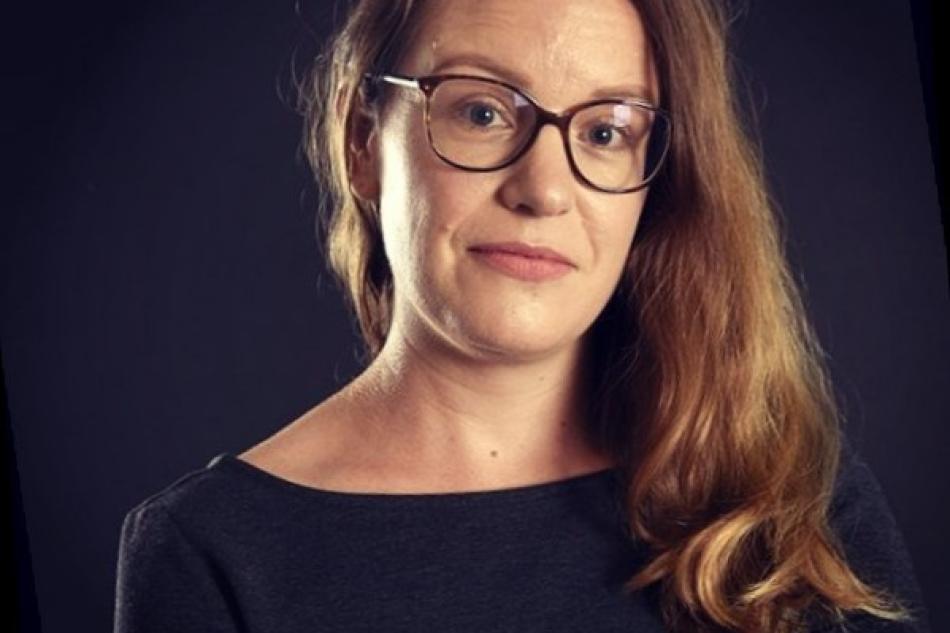
- Chief Scientific Officer at Paleo, Belgium
- Former postdoc at the Verstreken lab and head of the Collaborative Research Expertise unit
Tell us a bit more about your current role as CSO at Paleo.
Paleo is a young Belgian start-up using precision fermentation to produce animal proteins as highly functional ingredients for meat and fish replacers. As CSO, I lead the R&D team that engineers the microbial strains, optimizes the production process and tests these proteins. We are looking at regulatory, nutritional and sensorial aspects, sometimes in collaboration with manufacturers of plant-based meat or fish mimics.
How do you look back on your time in Leuven?
When I meet potential partners or investors, it is clear that my experience at VIB gives me scientific credibility. My time at the VIB-KU Leuven Center for Brain & Disease Research has been an invaluable learning experience. Still today, I am inspired by many former colleagues, who probably don't realize how profoundly they have influenced me and helped me grow.
Any advice for postdocs looking to take the next step in their career?
Take advantage of all the knowledge around you, including all the training opportunities that VIB offers. And do keep an open mind, you never know where opportunities will come from.
Luís Ribeiro
Luís Ribeiro
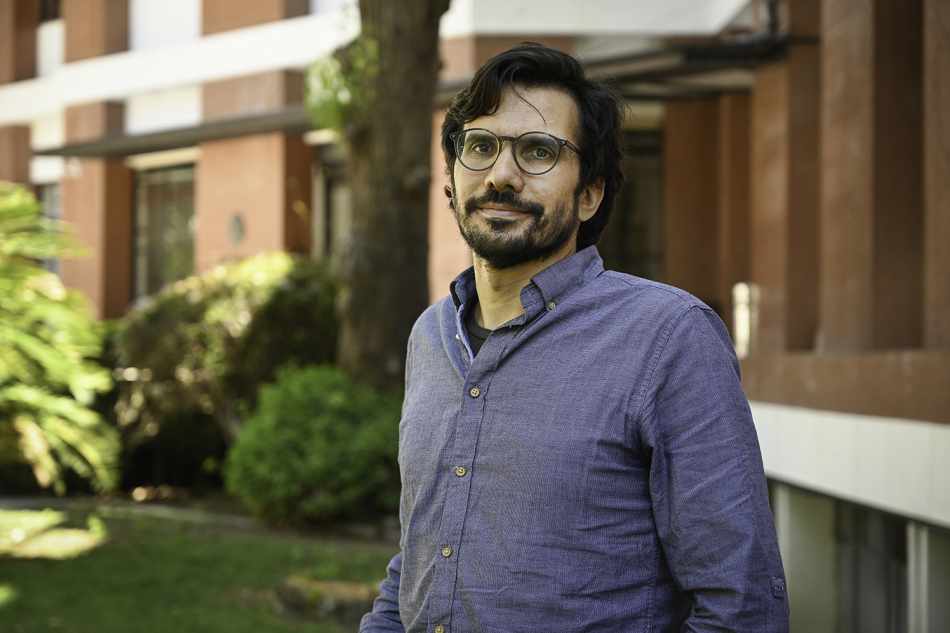
- Group leader at the University of Coimbra, Portugal
- Former postdoc at the de Wit lab
Tell us a bit more about your group and your current research.
I’m currently Assistant Researcher at the Center for Neuroscience and Cell Biology at the University of Coimbra. Within the Synapse Biology group headed by Prof. Ana Luísa Carvalho, I am developing my independent line of research. It's a very interesting setting because it provides me with access to expertise and equipment and offers critical mass, while at the same time I am able to create my independence as a scientist.
One of the main research questions we have in the lab is to identify and characterize the molecular machinery responsible for sending neuronal cargoes to the axon. In doing so we are aiming at better understanding the molecular basis of neuronal polarity.
How do you look back on your time in Leuven?
It was a very intense experience both scientifically and personally. My time as a postdoc allowed me to become a far more complete scientist than I had ever hoped for. I feel I became a better thinker, a better writer, definitely more critical, in sum a better scientist. At the VIB-KU Leuven Center for Brain & Disease Research and VIB, all the conditions are in place to get the best out of each of us; not in the least through excellent technical and admin support, which is one of the things that I have been missing the most.
Any advice for postdocs looking to take the next step in their academic career?
Start applying as early as possible, and try to get your PI and other more senior colleagues involved. Ask them to read your proposals, and discuss your ideas with them. They will give you precious feedback because they went through the same process and most likely they will perceive your proposal in the same way as the reviewers.
Evgenia Salta
Evgenia Salta
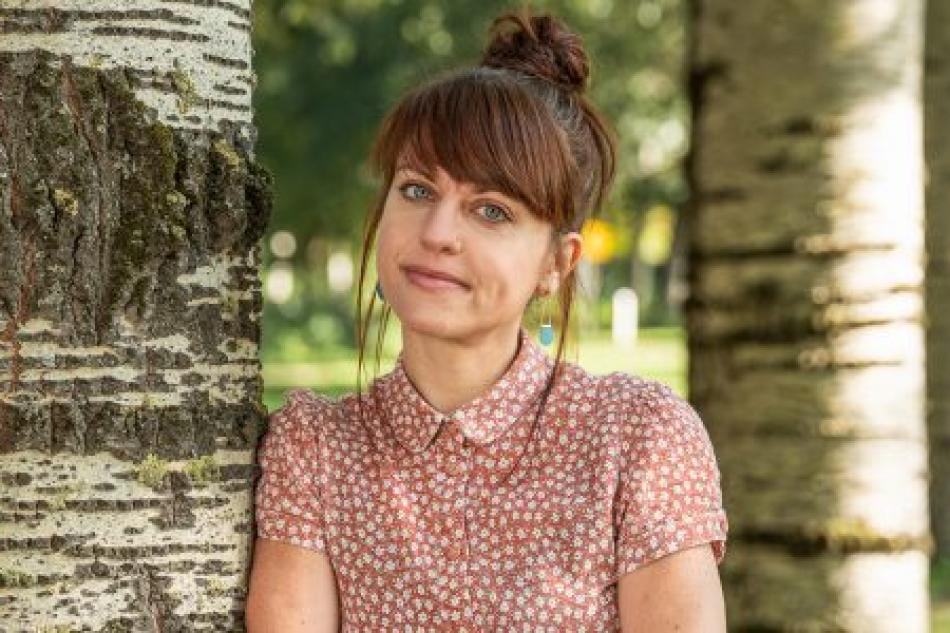
- Group leader at the Netherlands Institute of Neuroscience in Amsterdam
- Former postdoc at the De Strooper lab
Tell us a bit more about your group and your current research.
I started up my own research group at the Netherlands Institute for Neuroscience in Amsterdam in the summer of 2020. In the lab of Neurogenesis and Neurodegeneration, we explore the endogenous regenerative potential of our brain in neurodegeneration. We ask whether and how adult hippocampal neurogenesis can contribute to developing resilience to Alzheimer’s dementia and be recruited to prevent or counteract pathology. In our research, we employ single-cell omics in human postmortem brain, iPSC reprogramming and Alzheimer’s mouse models.
How do you look back on your time in Leuven?
VIB is research heaven. I am eternally grateful for all the opportunities I was provided with to get trained, learn, collaborate and grow as a scientist. Apart from being at the forefront of research, having direct access to cutting-edge technologies and being surrounded by amazing colleagues, supporting teams and facilities, have all been instrumental for my career.
VIB, KU Leuven and, more specifically, the lab of Bart De Strooper, have been a great school and one of the most important reasons for me to be where I am today.
Any advice for postdocs looking to take the next step in their academic career?
My advice is that there is no right advice. There is no ‘one size fits all’ path or recipe. I did not know exactly ‘what I wanted to be’. But I did know what I love to do, and that was research. As a group leader, I get the chance to do what I love and additionally to train the next generation of young scientists, and this is all extremely rewarding.
As PhDs or postdocs, we do get trained to do experiments and publish our work, yet often we do not get trained to be good team leaders and mentors. I was fortunate to have ample opportunities as a postdoc to write my own grant applications and supervise several students. I found this an invaluable experience for not drowning as a starting group leader.
Sandra Soukup
Sandra Soukup
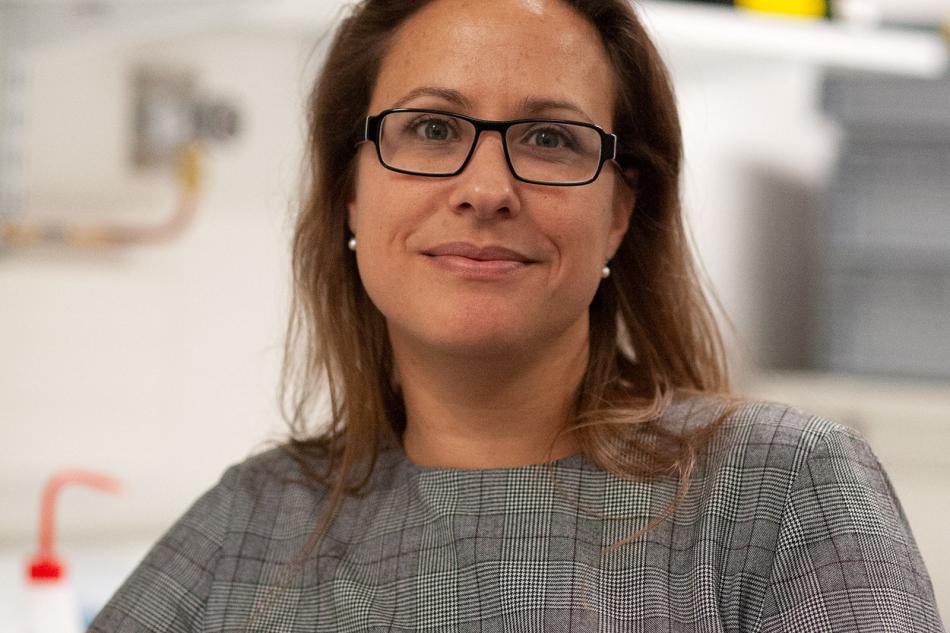
- Group leader at Bordeaux Neurocampus, at the University of Bordeaux
- Postdoc in the Verstreken lab from 2012 to 2018
Tell us a bit more about your group and your current research.
Since the end of 2018, I am working as a group leader in Bordeaux. My team currently consists of a lab manager, two postdocs and a PhD student. We are trying to understand synaptic homeostasis using Drosophila as a model.
How do you look back on your time with us?
During my time in Leuven, one of the most important lessons I learned was how to focus a project. What is really necessary from start to finish, and in terms of crafting a publication? How can you go from a pile of data to an interesting story?
Any advice for others aspiring to become group leaders?
What is absolutely essential is to look around early on, and find out at which institutes you could see yourself working. As a postdoc you spend most of the time in the lab, but you should start thinking about which research questions you would like to pursue in the next phase of your career. It’s good to think about these things quite early because it helps you to orient yourself, and to build the right network.
Ikuo Suzuki
Ikuo Suzuki
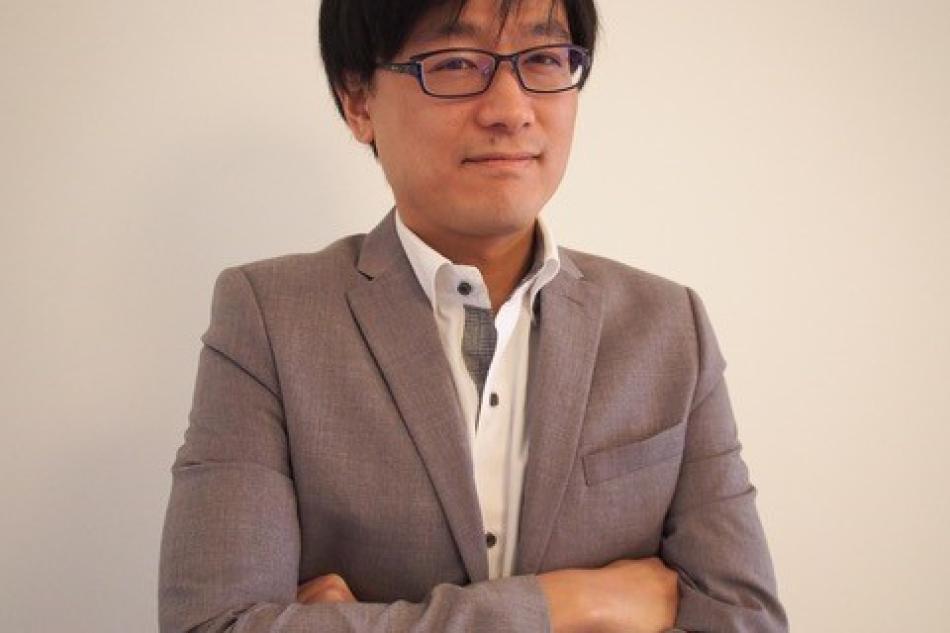
- Associate professor at the University of Tokyo
- postdoc in the Vanderhaeghen lab from 2012 to 2018
Tell us a bit more about your group and your current research.
I started a group with three technicians and a graduate student in the Department of Biological Sciences at the University of Tokyo. Our scientific goal is revealing the molecular and developmental basis of human neocortical evolution, which we also studied in Leuven. One part is focusing on the molecular features of NOTCH2NL, which we identified in the Vanderhaeghen lab a few years ago (Suzuki et al. Cell 2018), and a second part is to search for other important human-specific mechanisms of neocortical development. We spent most of our time last year setting up experimental systems and gathering funding. Now we are in the exciting moment to enjoy new projects this year!
How do you look back on your time with us?
It was fantastic: I could spend all my time on my own research! The seminars are great and I also enjoyed being part of collaborative projects involving multiple labs in the Center. I was absolutely satisfied of the science at the Center. In addition, I really enjoyed the cultural diversity in Belgium as a foreigner. I do miss Belgium, Leuven, and the Center for Brain & Disease Research...
Any advice for others aspiring to become group leaders?
It is a very difficult question. I did not exactly plan my own career development in much detail. I think all we can do is just do the best science we can. To do so, it is important to communicate with a lot of people to inspire ourselves. Good luck!
Silvia De Rubeis
Silvia De Rubeis
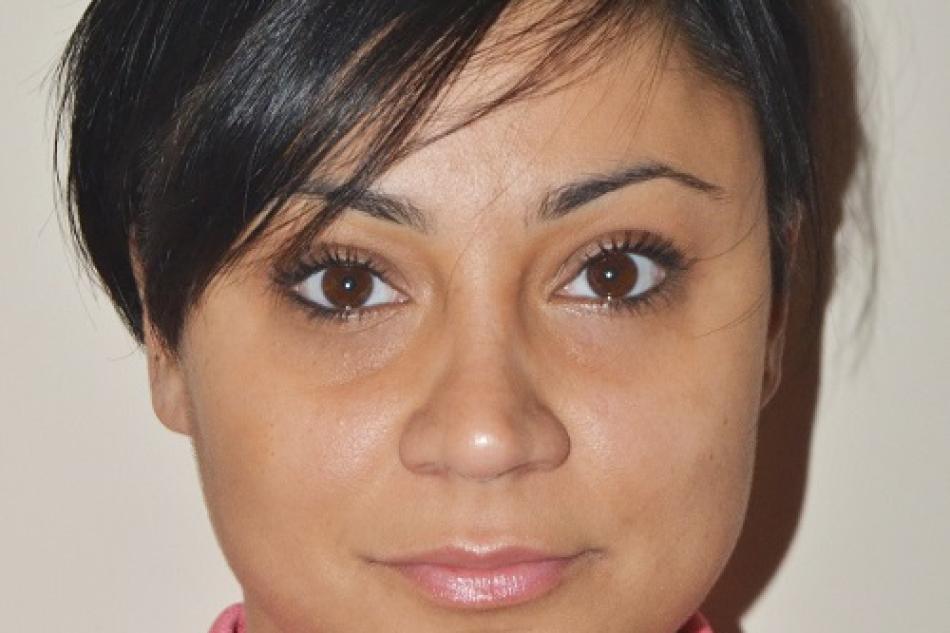
- postdoc in the Bagni lab from 2010 to 2013 (Claudia Bagni’s lab has since moved to Switzerland)
- relocated to New York and now leads her own group at the Seaver Autism Center for Research and Treatment and the Department of Psychiatry at the Icahn School of Medicine at Mount Sinai
Tell us a bit more about your group and your current research.
The Seaver Center is a fully integrated translational research center dedicated to discovering the biological causes of autism and developing breakthrough treatments. My group is part of an interdisciplinary team of geneticists, molecular biologists, stem cell researchers, and neuroscientists and has direct interactions with a clinical team of psychiatrists, psychologists, neurologists and clinical geneticists. We study the developmental defects resulting from disruptive mutations in novel high-risk genes identified from our ongoing large-scale genomic studies in autism and intellectual disability. We take a genetics-first approach for functional analyses in cellular and mouse models and we strive to take into account clinically relevant aspects that emerge from patient-based research.
How do you look back on your time in Leuven?
The time I spent at VIB and KU Leuven was critical to shape my scientific career and it was a lot of fun! What I valued most is that the science was top quality and yet the environment was extremely collegial. Many of my friends and current collaborators are VIB researchers or alumni. Plus, I had access to top-notch facilities and equipment, which are not a given in other institutes.
Any advice for postdocs looking to take the next step in their academic career?
The most important piece of advice I can give is to move out of your comfort zone! In my case, that meant changing both country and discipline. I visited four institutions across three countries. Switching from neuroscience to genomics in between postdocs was necessary to put the big picture in focus and refine my research goals. Also, make sure to find a mentor who supports you and fosters your independence, for example by showing you how to craft successful grant proposals. Lastly, don’t underestimate the value of peer-mentoring: peers will encourage you while lending some constructive criticism!
Sebastian Maurer-Stroh
Sebastian Maurer-Stroh
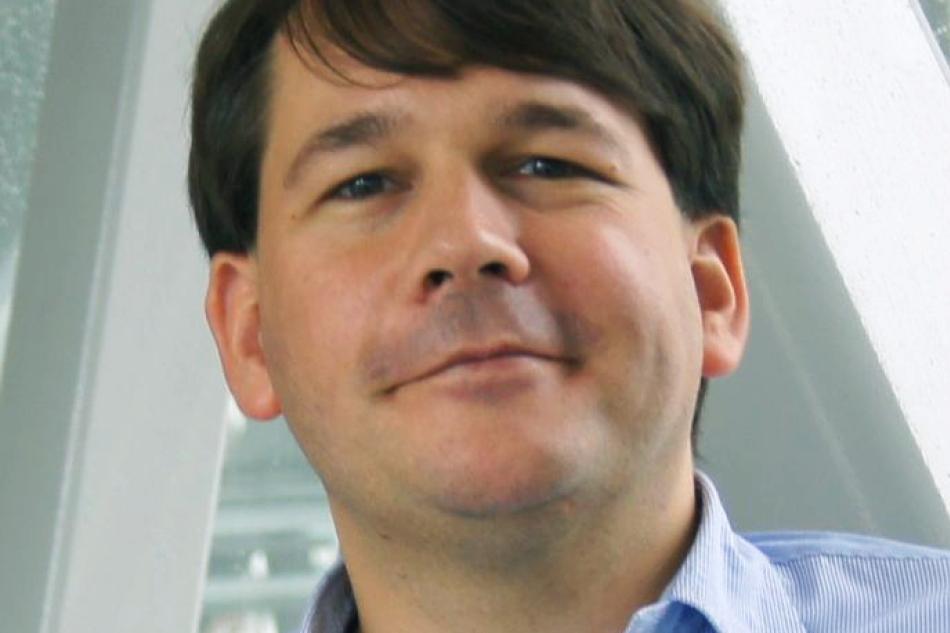
- Postdoc in the Switch lab from 2005 to 2007
- Now in Singapore as the program director Human Infectious Diseases at the Bioinformatics Institute of the Agency for Science, Technology and Research (A*STAR)
Tell us a bit more about your group and your current research.
I am a senior principal investigator and program director at the Bioinformatics Institute in Singapore which is part of an application-oriented government research agency called A*STAR, a structure somewhat similar to VIB.
I am leading a group of experts in computational protein sequence and structure analysis to predict various aspects of molecular and cellular functions (enzymatic activities, posttranslational modifications, cleavage, translocation signals, 3D structures, effects of mutations, phylogenetic relationships, cellular pathways etc.) for discovering the molecular mechanisms of biological and clinical phenotypes and experimental validation together with collaborators.
Our repertoire of computational analysis methods is applicable in multiple research areas but our main focus is on infectious diseases, allergy and human mutations. For influenza, we develop tools like the FluSurver that help assessing surveillance sequences for drug resistance mutations, pandemic risk and antigenic drift which helps researchers and the global WHO surveillance network. Often our research is useful for companies. For example, we are developing tools to predict allergenicity potential of proteins together with Procter & Gamble.
How do you look back on your time in Leuven?
After finishing my PhD at the University of Vienna, I joined the Switch lab as a post-doc supported by FEBS and Marie Curie fellowships. It was a great time in Belgium and
scientifically we achieved great progress on prediction of amyloid fibre formation from peptides and effects of mutations in human diseases. It was a very dynamic environment at high international level allowing development of tools that are a leap forward rather than typical incremental improvements. This was greatly facilitated by friendly group leaders
and colleagues that made it a joy to come to work and also meet outside work for a chat and drink.
Any advice for postdocs looking to take the next step in their academic career?
I feel very lucky about how my own career progressed and wouldn’t change a thing. The people I met along the way were all essential and supportive throughout to make
this possible. Of course, you need to be ambitious to go far and work hard but this is easier in a friendly dynamic environment so selecting the group you are joining is critical. Don’t just look at names of institutions but the specific scientific output of the group and get in touch with other students and postdocs if the atmosphere in the lab is good. If this works out well you will be able to produce good papers, several if possible, that will lead you further. In addition to that, make yourself visible and heard to the big names in your field, for example talk to them at conferences, scientific advisory board meetings etc. The combination of these was critical for me to move up to my first group leader position.
Angela Laird
Angela Laird
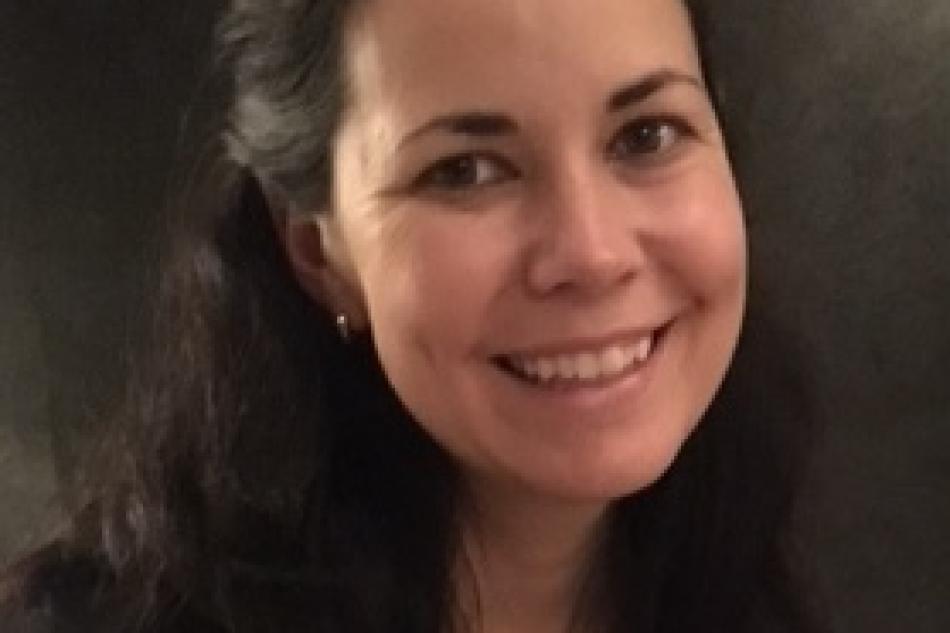
- Postdoc in the Van Den Bosch lab from 2008 to 2011
- Moved back to her home country of Australia, where she currently leads her own group at the Centre for Motor Neurone Disease Resarch at Macquarie University in Sydney
Tell us a bit more about your group and your current research.
My team at the Centre for Motor Neurone Disease Research at Macquarie University in Sydney is still small. I have one PhD student preparing to submit her thesis, two postdocs and two research assistants, however, I am recruiting more team members at the moment as our research projects expand (come join us!). I formed my team using the research background and skills that I had developed at VIB-KU Leuven, including developing and studying zebrafish models of neurodegenerative diseases such as spinocerebellar ataxia-3 and ALS. We have been testing therapeutic agents on these zebrafish models and are now expanding our work to start testing those treatments in rodent and cell culture models.
How do you look back on your time in Leuven?
I look back on that time very fondly and often wish that I had stayed on longer! I loved being involved in the great scientific work in the group of Ludo Van Den Bosch and with Wim Robberecht! I received amazing mentorship and I feel that my time working at VIB & KU Leuven helped me develop skills in developing worthwhile scientific studies, asking important questions and always reflecting back at what studies had the potential to help patients with the disease that we were studying.
Any advice for postdocs looking to take the next step in their academic career?
For postdocs visiting from overseas I would advise that you visit your home country from time to time during your postdoc. I didn’t do that, I spent any holidays travelling in Europe, which was great fun, but in hindsight I think it shortened the duration of my postdoc because it was too long away from family. Also, work on finishing up old studies before you start too many new ones, because loose ends don’t help you in the science world! And finally, ‘you have to be in it to win it’, so work hard (and spend time) on writing grant and fellowship applications because you need those for the next steps!
Bassem Hassan
Bassem Hassan
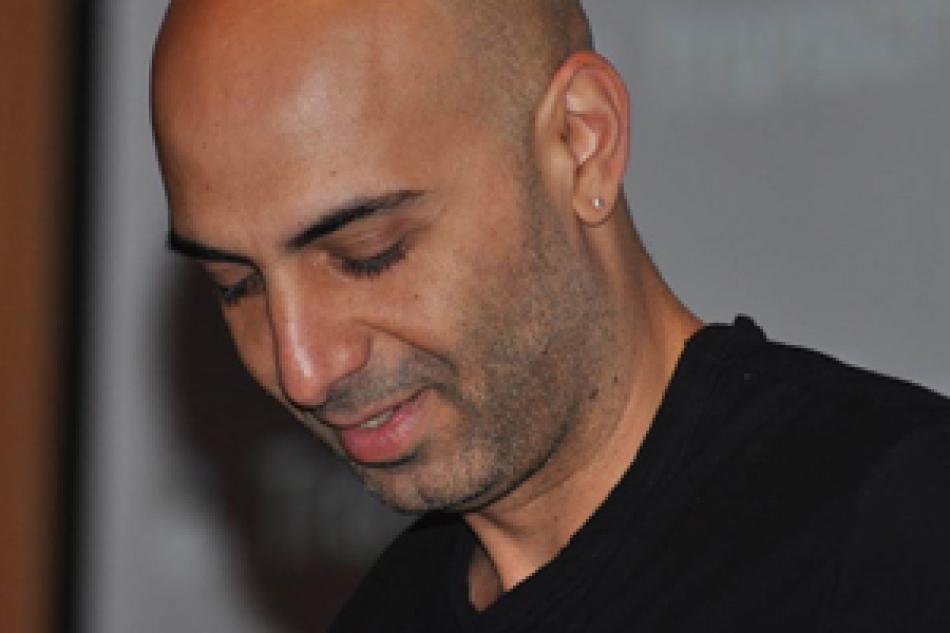
Bassem Hassan was group leader at VIB from 2001 until 2016. He currently is team leader as well as scientific director at Institut du Cerveau–ICM in Paris.
How do you look back on your time in Leuven?
My time at VIB was special in so many ways. I started my career as a PI at VIB when VIB was a young unknown institute and I was a naive and inexperienced PI. By the time I left, VIB had become a world class center of research. So, the path was full of so many “firsts” for me. In some ways, my time at VIB helped define the kind of scientist and PI I am today.
Can you share an important or valuable lesson you learned?
I spent 15 years at VIB, so it’s hard to pinpoint one specific lesson, but maybe one thing is worth highlighting. From day one at VIB I was involved in changing things. That early involvement in leadership and strategy is very helpful for me today as the Scientific Director of ICM, because I can draw upon those lessons, both good and bad, to hopefully be the best director I can be.
Any advice for young researchers aspiring to become group leaders?
Honestly, I have always disliked this question. I am a strong believer in the “individuality” of our motivations, and I don’t think that what drives me or helps me necessarily applies to anyone else. There are generic boring phrases that everyone throws around (work hard, have passion etc.) but that’s true for any career in any sector. Maybe one thing that doesn’t get told that often to students and postdocs is that your success as PI depends just as much on being able to manage resources and be a good leader of people, as it does on how hard you work, how smart you are or how much passion you have for your work.
Claudia Bagni
Claudia Bagni
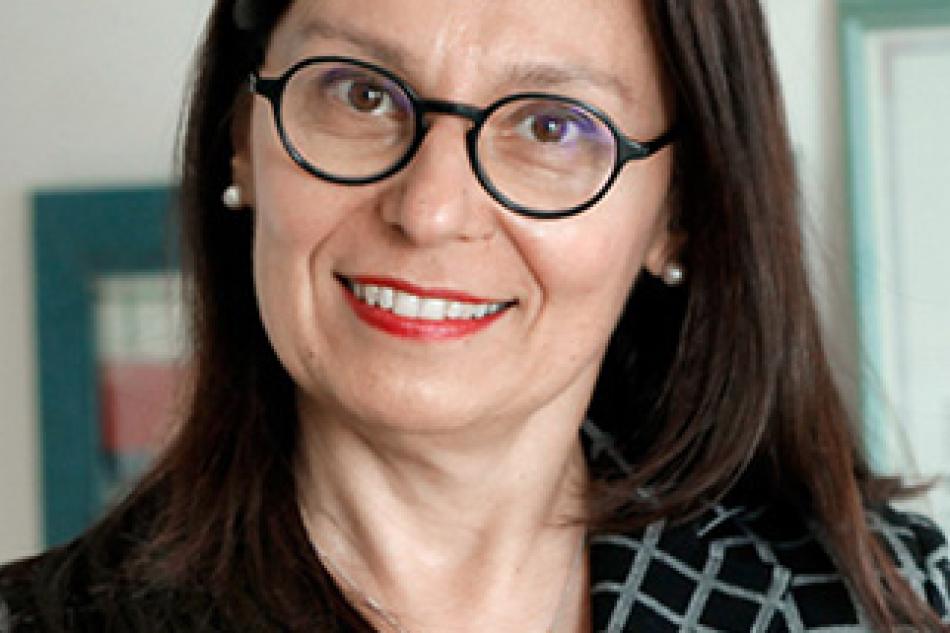
Claudia Bagni was a group leader at VIB from 2007 until 2016. She is now professor at and director of the Department of Fundamental Neurosciences (DNF) at the University of Lausanne.
How do you look back on your time in Leuven?
I spent almost nine years at VIB & KU Leuven, that I consider one of the most leading academic centers in Europe. I moved there because of my strong interest in intellectual
disabilities and human genetics, and KU Leuven has a long history on human studies on Fragile X Syndrome. I had the opportunity to discuss and learn from wonderful clinicians and basic scientists. VIB adds an additional spirit to that. I was able to tackle and further develop my questions thanks to the rich and dynamic scientific environment and state-of-the-art
facilities. My time at KU Leuven and VIB in one sentence: it is all about great and fun science!
Can you share an important or valuable lesson you learned?
As Chair of a Department, I have been largely inspired by my time in Leuven. Among the many aspects I remember with pleasure and that inspired my work here: the driving force of the PhD students and their initiatives, the departmental retreats and the outstanding seminar series. Believe it or not, I also very much enjoyed the scientific advisory board visits and evaluations. A moment for each of us to think about the next big questions!
Any advice for young researchers aspiring to become group leaders?
KU Leuven and VIB should be seen as one of the places in the world where you learn what scientific excellence is. Developing your own key questions and becoming a leader in your field is demanding and therefore it is important to have mentors and colleagues who support and challenge your ideas and provide input for deep scientific and philosophical discussions!
